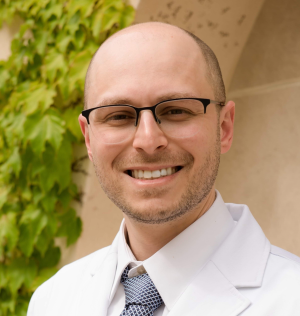
Dealing with pimples as an adult is not unusual. Many women suffer from hormonal breakouts well into their 30s and 40s, which are intrinsically linked to fluctuating levels of androgens. Produced by the adrenal glands and ovaries, testosterone is important for a healthy libido and helps with muscle mass and bone strength.
Increases in male sex hormones like testosterone cause the skin’s sebaceous glands to produce excess oil. This type of hormonal acne tends to occur on the lower part of the face and can include painful cysts right around the start of one’s monthly cycle.
Many of our patients who seek acne treatment in Dallas are bothered by blemishes that coincide with their menstrual cycles. And for many of these women, birth control pills have been the frontline option for treating hormonal acne. Contact us today for a Dallas dermatology appointment because we have different and often more effective treatment options.
Hormonal Acne Treatment Without the Pill
As noted, if you are struggling with inflamed skin caused by fluctuating hormones, there are other ways to keep pimples at bay without taking oral contraceptives. Whether you cannot take them or haven’t seen benefits from the therapy, several dermatologist-approved alternatives can be highly effective. We may recommend the following treatments to help you achieve clearer, blemish-free skin.
Oral Spironolactone
Spironolactone (Aldactone) is an oral medication that blocks the effects of androgens on the skin. Most women begin to notice less oily skin and fewer breakouts within a month of starting spironolactone, but this treatment can take three months before full results are evident.
Topical Clascoterone
One of the newest advances in hormonal acne treatment is WINLEVI topical cream. It is a 1% clascoterone formulation that targets the effects of acne-causing hormones in the skin that cause inflammation and excess oil production. Applied to clean dry skin twice a day, it can help reduce hormonal breakouts within 10-12 weeks.
BBL Forever Clear Therapy
Developed by Sciton, BBL Forever Clear is a revolutionary broadband light therapy that treats the root cause of acne – without medication, topical creams, or birth control pills. Women dealing with hormonal breakouts can see significant improvement in their skin with this quick and painless in-office treatment. BBL Forever Clear uses a combination of blue, yellow, and infra-red light to kill acne-causing bacteria, diminish inflammation and promote the body’s healing process. Most patients will benefit from a series of 6 BBL sessions to get clearer, acne-free skin.
Chemical Peels
A series of custom formulated chemical peels with key actives like alpha hydroxy and glycolic acids can remove pore-clogging debris that contributes to painful cysts and blemishes.
Hormonal Acne Treatment in Dallas
If you would like to discuss your concerns with our board-certified dermatologists and receive a customized hormonal acne treatment plan that doesn’t include birth control pills, please contact us today. Dallas Dermatology Partners has a central office location, serving residents throughout Dallas/Fort Worth, Addison, Plano, Richardson, and Frisco.

If you’ve ever wanted to know how to rid your skin of acne, you might want to learn how adults get it in the first place. For one, having acne can harm your emotional health and lead to depression. Not to mention the fact that skin blemishes can negatively affect self-confidence. Therefore, it’s imperative for adults to understand the causes of acne and to find solutions to this problem.
How Do Adults Get Acne?
If you’ve ever noticed acne on your skin when you’re stressed out, this is because adults who are under constant stress get acne. Consequently, this can be an ongoing problem. A person’s body responds to stress by producing extra androgens, which are a type of hormone. Furthermore, when the androgens stimulate the skin’s hair follicles and oil glands, acne may occur. After you turn 25 years old, you’re susceptible to post-adolescent or adult acne. If you’d like further guidance on how to deal with this problem, an acne dermatologist in Philadelphia could help.
The Impact Food Has on Skin
According to research, milk and whey protein are linked to acne. Indeed, your diet can make your acne worse, since what you eat can affect hormones. For instance, foods with high sugar content, such as milk, can cause insulin levels to rise. This can change other hormones and affect the skin. Other foods you may want to avoid to reduce acne concerns include fast food, greasy food, whey protein powder, dairy products, chocolate, and foods you’re sensitive to, among others. But if you’ve already tried to take care of acne yourself, you may have obtained scars from irritating your skin.
For this reason, you may want to consider acne scar removal in Southampton, PA. Experts can give you the advice and treatment you need to achieve skin that’s clearer and healthier. A few other foods that can cause adult acne are:
- Cake
- White bread
- Soda
- Ice cream
- Candy
- French fries
Reasons to Work with a Dermatologist
To eliminate unsightly skin blemishes, a dermatologist can address your concerns by educating you about acne. A professional can also list specific products that effectively deal with your issue. This can help avoid wasting your money on products that aren’t right for your skin. A dermatologist can look at your skin, recommend useful products for you to try, and begin treating your acne.
Contact a Professional
Unsure of your next step? The experts at Pennsylvania Dermatology Specialist are ready to help. Contact us today!

Grown Women With Acne?
 Todd Minars, M.D.
Todd Minars, M.D.
Dermatology
Not a day passes in my office when I don’t hear a “thirty-something” woman distressingly ask, “Why am I having acne at this age? I am not a teenager.” It is a misconception that acne only affects women during their teens. Fortunately, there are many options for treatment, but they all fall into one of four categories: 1) creams, 2) pills, 3) peels and 4) laser. “Cream” really includes everything that you put on your skin: make-up and moisturizers must be oil-free or say “non-comedogenic” on the packaging. Washes should contain benzoyl peroxide, salicylic acid or glycolic acid. But the most important creams for acne are the retinoids: Retin-A, Differin, or Tazorac. Retinoids are the only creams that address the cause of acne: sticky skin cells in the opening of the hair follicles that don’t shed correctly.
Pills for acne start with antibiotics and end with Accutane. But in women there are other choices, including birth control pills and a “hormone-blocking” pill called Aldactone.
There is even a prescription vitamin for acne. Other treatments, available at your dermatologist’s office, are peels and lasers. There are two types of Peels. 1) Chemical peels – such as salicylic acid peels; and 2) Physical peels – such as microdermabrasion. Both have the same goal – exfoliating skin: especially those sticky skin cells that block the hair follicles and cause your acne. The choice between salicylic acid and microdermabrasion depends on your skin type. Acne surgery (extractions) and cortisone injections are also available at your dermatologist’s office. A cortisoneinjection is the only treatment that is going to make that big red “underground” zit go away in 24 hours instead of three weeks.
And finally, the newest treatment for acne is the SmoothBeam Laser that has recently been FDA approved for the treatment of acne. With this laser, the patient is treated once every two weeks for four treatments. The laser targets and selectively shrinks the sebaceous (oil) glands, which play a prominent role in the cause of acne.
For more information, call Dr. Todd Minars at 954-987-7512.

While it is true that acne most commonly appears during the teenage years, it is just as true that a large percentage of individuals suffer from adult acne. In fact, figures show that as much as 25 percent of men and 50 percent of women in their twenties up to their fifties still experience pimple flare-ups. Adult acne can have just as much negative psychological effects as adolescent acne — perhaps even more so. The stress of having a career or raising a family is bad enough. Having to deal with an unsightly skin problem at the same time would be even worse.
Adult acne can be caused by several things, one of which is mental stress. The body can react to stress by increasing the secretions of the skin’s sebaceous glands or by releasing more hormones from the adrenal glands. Oils from the sebaceous glands can block pores, while a greater amount of hormones in the body can cause hormonal imbalance — both of which can give rise to acne flare-ups or exacerbate an existing acne condition.
It is not surprising that women suffer from adult acne more than men do, since women are more prone to hormonal imbalance. It is known that changes in hormone levels can occur during menstruation and pregnancy. But men, too, are subject to hormonal changes, though not to the extreme level that most women undergo. In any case, hormones play a great role in the occurrence of acne in adults.
Lifestyle and environmental factors also contribute significantly to the emergence of adult acne. A diet that is poor in the necessary vitamins and minerals can wreak havoc on how the body’s organs functions. The skin, being the largest organ in the body, needs nutrients in order to work effectively. If the skin is unable to metabolize or secrete the waste products that it needs to because of poor nutrition, acne can result. Habits such as smoking and drinking can also affect the skin’s condition and its resistance to diseases like adult acne.
What is the best way to deal with adult acne? Like many other ailments, prevention is the key. Make sure that a proper diet is being followed; get enough rest; try to find ways to alleviate stress; maintain proper hygiene to prevent dust from accumulating and blocking the pores. Washing the face once or twice a day and using hypoallergenic or noncomedogenic cosmetics and other personal care products can go a long way towards preventing adult acne.
Treatment options abound for persons with adult acne, however mild or severe their condition may be. Dermatologists may recommend anti-acne medications to be taken in conjunction with other skin care products. More severe cases — such as those involving infection — can be treated with antibiotics to prevent complications. Very severe cases of adult acne have several therapeutic regimes, such as microdermabrasion and laser surgery. A person suffering from adult acne, whatever the level of severity should consult a dermatologist or other qualified professionals to get the treatment option that is the most suitable for him or her.

This study also showed that adult women with acne usually respond well to first-line acne therapy. While birth control pills and other hormonal treatments provide an important treatment option for some patients, most adult women will see positive results from the use of topical retinoid and some form of antibiotic.
These acne medications reduce plugging of the follicles that lead to the development of pimples and reduce the P. acne bacteria that cause inflammation.
Source: Vivacare
Last updated : 2/10/2023